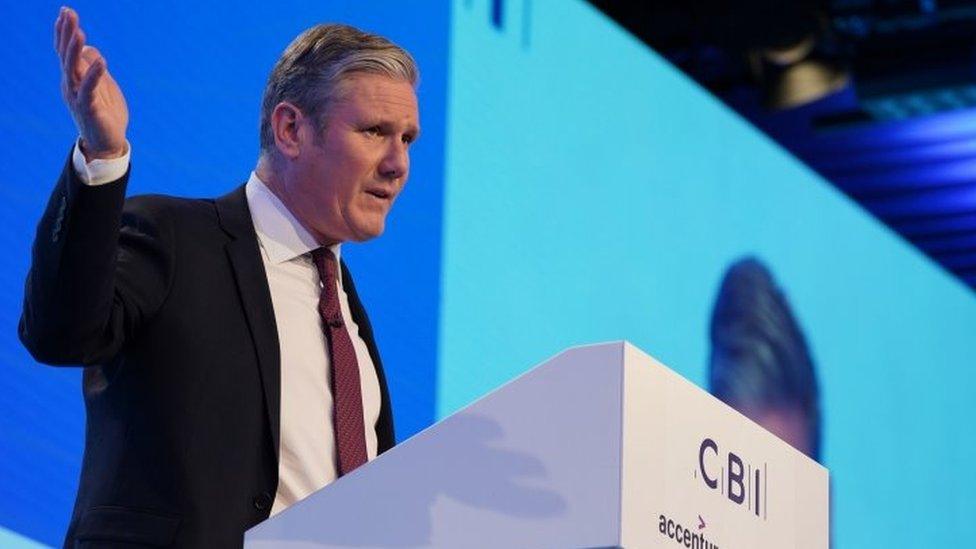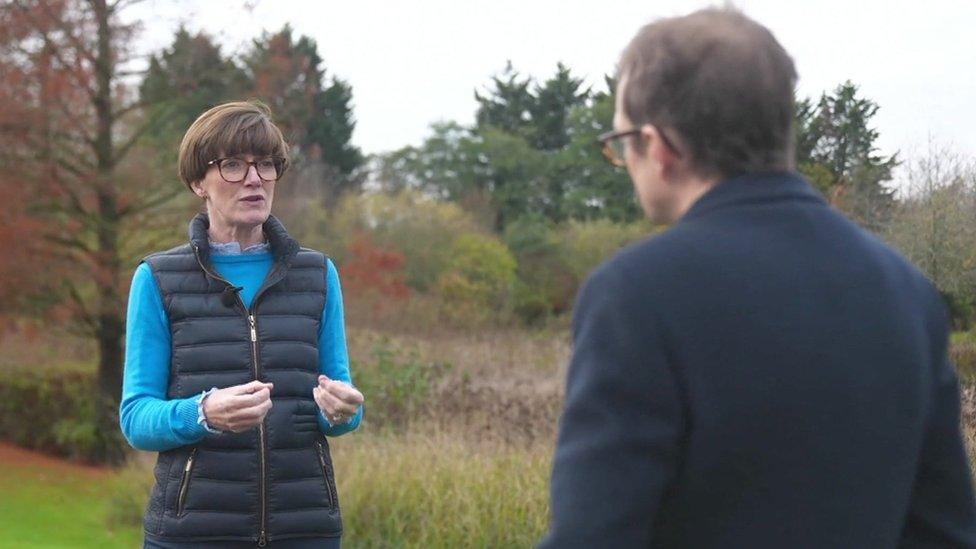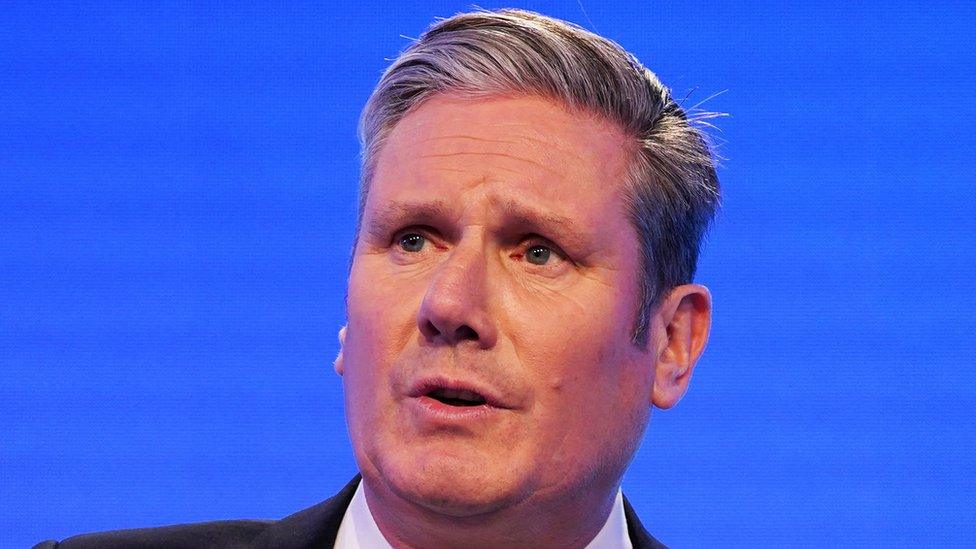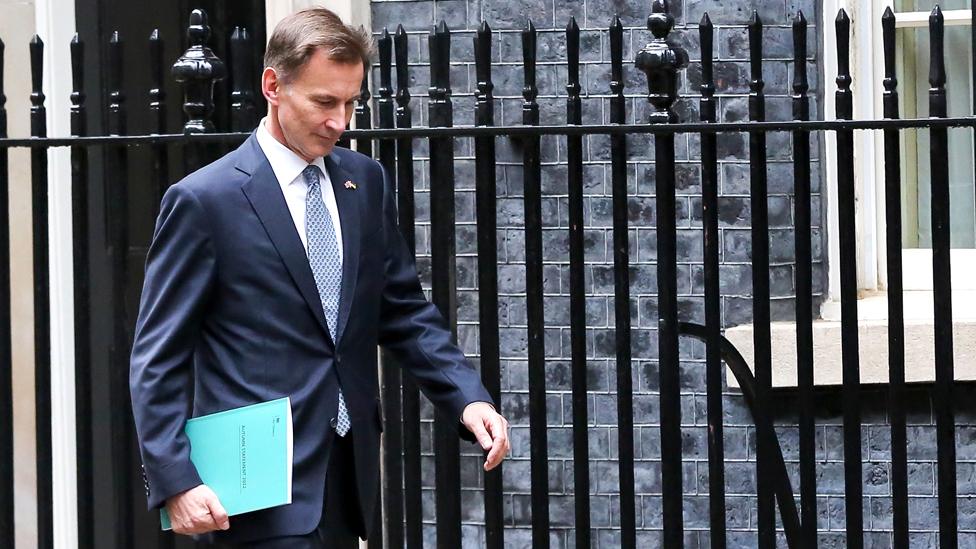Chris Mason: Brexit has shifted Labour's instinct on immigration
- Published

What a change.
Yes, it's been in the offing for a while.
But it is worth emphasising what an about-turn Sir Keir Starmer's call to wean the UK off its "immigration dependency" amounts to.
This from a party that oversaw huge levels of immigration from central and eastern Europe almost two decades ago, which transformed many communities all over the UK.
And this from a man who campaigned to maintain freedom of movement with the European Union when he ran to be Labour leader under three years ago.
It was even one of his 10 pledges for the leadership, external.
Labour's instinct now is different. Very different.
Sir Keir repeatedly refused to tell me if he thought net migration was currently too high, but this is a party determined to be seen to learn one of the lessons of the Brexit referendum; a concern about the scale of immigration.
Sir Keir Starmer says he will not pick "arbitrary migration targets" over the number of workers coming to the UK from abroad
Yet this comes as some business leaders say they have run out of available workforce, which, they argue, is crushing growth and pushing up prices.
And it's not just here in the conference centre in Birmingham, on a retail park next to the airport, where you hear those concerns.
Cost to businesses
We drove half-an-hour down the road to the headquarters of the National Farmers' Union near Kenilworth in Warwickshire, where the main item on the agenda of the union's National Horticulture and Potatoes Board today was the very same issue.
Ali Capper, a hops and apples farmer on the Worcestershire-Herefordshire border, told me "there is a strong chance that it will put our business out of business".
She said: "It is very difficult to see a way forward when we have no clear idea how we are going to recruit next year.
"And when the cost, the inflation that is built into that workforce every year, is going up in double digits."

Farmer Ali Capper fears the lack of labour could put her company out of business
And she doesn't think politicians from either the Conservatives or Labour are listening.
Other farmers also told me there is an obvious cost to their businesses. But a moral cost too.
At a time of spiralling food prices, and some families struggling to feed themselves, food is left to rot because there aren't the workers to pick it.
Some argue too many British people aren't willing to do what can be backbreaking work.
But with unemployment at historically low levels, for now at least, the farmers argue that isn't the crux of the issue.
The crux is numbers. There simply aren't enough workers.
The Brexit effect
But, six years on, the Brexit referendum is still a major contributor to the political weather and that isn't likely to fundamentally change before the general election.
Labour have to convince the millions of voters who rejected them in 2019 that they understand the contributory factors that led to that rejection.
Sir Keir wants to frame an argument for a post-Brexit world, where "low pay and cheap labour" - as he put it - are not part of the "British way on growth".
He reckons that is an approach that "borders on a disaster" in the long run, and the solution is investing in people, to boost skills and productivity.
He wants to make the immigration system more responsive to short-term need, but not a crutch.
But speak to people here at the CBI privately, and they fear neither the Conservatives nor Labour get it.
They say the Conservatives don't have a growth strategy and Labour's could prove prohibitively expensive.
There is, though, another thing worth mentioning here.
Beyond his message on immigration, Sir Keir is determined to continue his charm offensive with businesses.
He boasts of meeting over 100 chief executives in the last six months. He talks up the value of enterprise and profit.
Labour hasn't just changed, he claims. He reckons it's been turned "inside out". And the Labour leader was warmly received by the CBI.
The political battle for the endorsement - or at least tolerance - of corporate Britain is on and competitive.
Related topics
- Published22 November 2022

- Published21 November 2022

- Published18 November 2022

